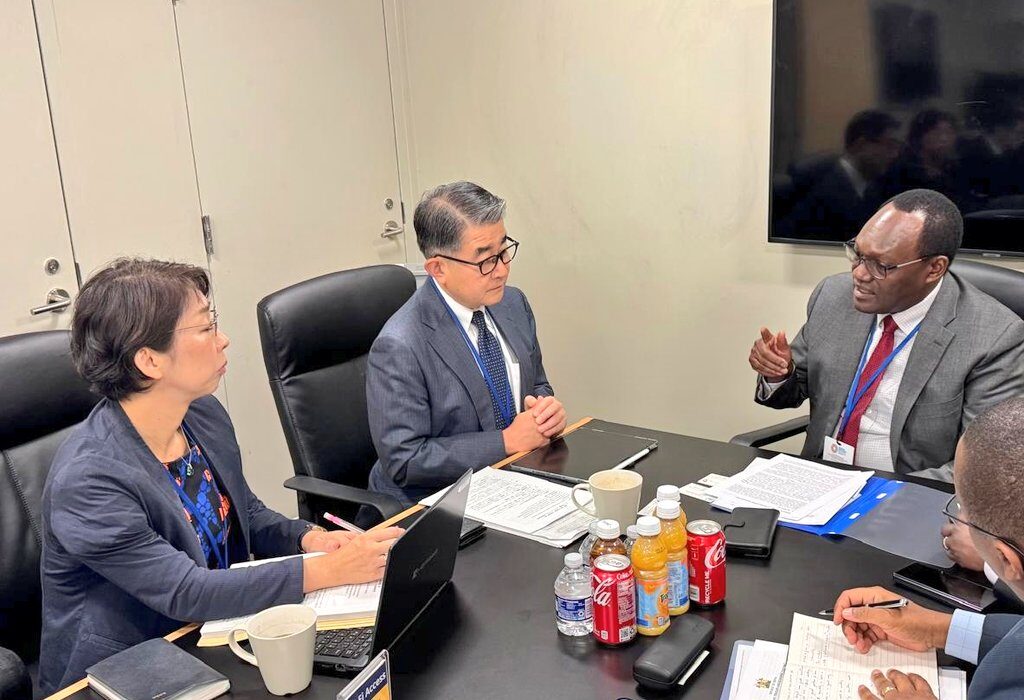On October 30, 2024, the Executive Board of the International Monetary Fund (IMF) is scheduled to hold discussions on the combined seventh and eighth review of Kenya’s Extended Fund Facility (EFF) and Extended Credit Facility (ECF). Additionally, the board will review the Resilience and Sustainability Facility (RSF) arrangements, which have been a significant part of Kenya’s multi-year economic program. These discussions are a crucial aspect of the ongoing cooperation between Kenya and the IMF, involving a total program package of approximately $3.6 billion.
The Context of Kenya’s IMF Program
Kenya’s three-year EFF and ECF arrangements, initiated in 2021, aim to provide financial assistance while supporting the country’s economic recovery and development. The program’s focus includes addressing Kenya’s debt vulnerabilities, stimulating growth, and implementing structural reforms to strengthen public sector management.
Over the years, the IMF’s financial support has been essential in helping Kenya navigate its fiscal and external imbalances. Initially valued at approximately $2.34 billion, the program’s value increased to $3.6 billion after the successful addition of the RSF. The program’s key objectives include:
- Enhancing debt management and fiscal transparency: With Kenya’s rising debt levels, the IMF’s financial program aims to improve debt sustainability and ensure prudent fiscal management.
- Implementing fiscal and economic reforms: Structural reforms are critical to boosting revenue mobilization, improving public financial management, and ensuring transparency in expenditure.
- Supporting climate resilience: The introduction of the RSF provides additional funding aimed at enhancing climate resilience, sustainability, and financing strategies for climate initiatives in Kenya.
Kenya’s Journey Through the EFF and ECF Programs
In the combined seventh and eighth review, the IMF will evaluate the progress Kenya has made under the program, focusing on critical aspects such as fiscal policy reforms, debt sustainability, and structural improvements. The IMF will also assess the country’s adherence to agreed-upon targets and benchmarks, including revenue generation and expenditure management.
As part of the review process, the IMF board will also consider approving a post-review disbursement of approximately $874 million. If approved, this funding would be instrumental in maintaining the momentum of Kenya’s economic recovery efforts. These reviews are essential for the continuation of the program, as they signal Kenya’s commitment to fiscal and structural adjustments.
Anticipated Outcomes and Implications for Kenya
Kenya’s continued engagement with the IMF is pivotal at a time when the country is grappling with economic headwinds, including mounting debt and fiscal challenges. The successful completion of the seventh and eighth reviews would open the door to further disbursements, which are crucial for stabilizing Kenya’s economy and sustaining reforms.
The additional $874 million disbursement under the ECF, EFF, and RSF arrangements would significantly boost Kenya’s efforts to address fiscal imbalances and enhance climate resilience. Furthermore, these funds would help alleviate pressures from rising debt levels and inflation while providing the necessary resources to implement ongoing development projects.
Strengthening Fiscal Policy and Debt Management
Kenya’s commitment to debt management and fiscal policy reforms has been a focal point of the IMF program. With the country’s debt-to-GDP ratio surpassing 65%, effective debt management has become a key priority to prevent the risk of debt distress.
The IMF’s ECF and EFF programs focus on bolstering Kenya’s revenue mobilization efforts and enhancing transparency in public financial management. This is vital, considering Kenya’s need to finance development projects and essential services while minimizing reliance on external borrowing.
Enhancing Climate Resilience and Sustainability
One of the unique features of Kenya’s engagement with the IMF is the inclusion of the Resilience and Sustainability Facility (RSF). Launched in 2022, the RSF aims to address the specific vulnerabilities related to climate change, which poses a significant threat to Kenya’s long-term economic stability.
The RSF supports Kenya’s climate resilience initiatives by providing concessional financing for projects aimed at mitigating and adapting to climate change. The program’s focus on climate action is crucial as Kenya faces challenges related to food security, water scarcity, and environmental degradation.
The Path Forward: Structural Reforms and Economic Growth
The upcoming IMF review also provides an opportunity to assess Kenya’s progress in implementing structural reforms critical to sustainable economic growth. As part of the program, Kenya has undertaken reforms aimed at:
- Improving governance and public sector efficiency: Strengthening the management of public resources and combating corruption are crucial to enhancing transparency and accountability in the government.
- Boosting domestic revenue mobilization: Tax policy reforms and improvements in tax administration are expected to increase domestic revenues, reducing Kenya’s reliance on external financing.
- Supporting inclusive growth: The IMF’s financial support aims to address social inequalities and ensure that economic growth benefits all segments of the population.
Kenya’s ability to implement these reforms effectively will be key to achieving long-term economic stability and resilience. The IMF’s assessment will likely examine the progress made in these areas and provide recommendations for further improvements.
IMF’s Commitment to Kenya’s Economic Stability
The IMF’s ongoing support for Kenya underscores the organization’s commitment to fostering economic stability and sustainable development in the country. In addition to providing financial assistance, the IMF collaborates closely with Kenyan authorities to design and implement policies that promote inclusive growth, enhance resilience, and address structural challenges.
The IMF’s Resident Representative in Kenya, Tobias Rasmussen, emphasized the importance of these reviews in a previous statement, noting:
“The IMF program in Kenya is designed to help the country navigate economic challenges and build a more resilient and inclusive economy. We remain committed to working with the Kenyan government to achieve the program’s objectives and support the well-being of the Kenyan people.”
Key Takeaways and Expectations
The IMF Executive Board’s meeting on October 30 will be a pivotal moment for Kenya as it seeks continued support under the ECF, EFF, and RSF arrangements. The successful completion of the combined seventh and eighth reviews would signify Kenya’s progress in addressing fiscal imbalances, improving debt sustainability, and advancing critical reforms.
While the exact outcome of the review remains to be seen, the anticipated $874 million disbursement would provide much-needed support for Kenya’s fiscal consolidation efforts and climate resilience initiatives. As Kenya moves forward, maintaining a strong commitment to reform and transparency will be essential to ensuring the program’s success and achieving sustainable economic growth.





